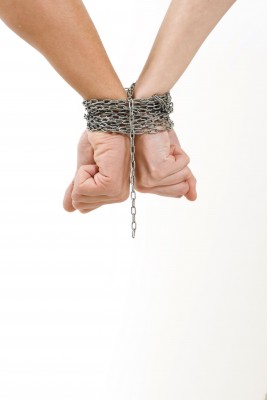Navigating Protective Orders and Resources for Victims of Domestic Violence During Divorce Proceedings in Virginia

Domestic violence is an unfortunate reality that many individuals face and it can significantly complicate divorce proceedings. Knowing how to navigate the legal landscape surrounding protective orders and available resources can be life-changing and sometimes even life-saving. This article explores protective orders in Virginia, domestic violence laws, and the local resources available to victims, particularly in Fairfax County and Loudoun County.
Understanding Protective Orders in Virginia
There are generally three types of protective orders:
Emergency Protective Orders (EPO): Last for 72 hours and can be issued immediately following a domestic violence incident by a magistrate or a judge, regardless of whether an arrest is made.
Preliminary Protective Orders: Last up to 15 days and require a court hearing before a magistrate or judge.
Permanent Protective Orders: Last up to two years and require an extended legal process.
How to Get a Protective Order in Virginia
The process begins with filing a petition in your local Juvenile and Domestic Relations District Court or Circuit Court. Go to the clerk of court and tell him/her you want an application for a protective order. If you are in immediate danger of abuse and the court is closed, you may get an EPO by going to the nearest police department.
On the complaint for protective order form, you will be the “petitioner” and the abuser will be the “respondent.” Write in detail about the most recent incidents of violence, using clear language. List dates, times, and witnesses when possible. After you finish filling out your application, bring it back to the court clerk, who will forward it to a magistrate or judge. The magistrate or judge may ask you questions about your application and will decide whether or not to issue the preliminary order.
If an order for a preliminary protective order is entered, the abuser must then be served with notice of the final hearing. That hearing will generally take place within 15 days from the time you file the petition. You must go to the hearing. If you do not, your preliminary order will expire, you will have to start the process over, and it may be harder for you to get a protective order in the future.
It’s essential to consult with an attorney familiar in domestic violence laws in Virginia to ensure you are taking the correct steps and have gathered sufficient evidence to support your claim such as photographs, medical records, or prior written threats of violence.
Domestic Violence Laws in Virginia
Virginia law provides various protections for victims of domestic violence, including criminal penalties for offenders and provisions for protective orders. Specifically, Virginia Code Sections 16.1-228 and 18.2-57.2 defines Assault and battery against a family or household member and Section 18.2-57.3 discusses the penalties for perpetrators of domestic violence. Understanding these laws can be crucial to protecting yourself and your family.
No-Contact Orders in Fairfax or Loudoun County
If you reside in Fairfax or Loudoun County, you can specifically request a “no-contact order,” which forbids the offender from making any contact with you. This can be especially useful in divorce cases where tensions run high. Keep in mind, however, how and whether such an order might impact each parent’s ability to exercise visitation with a child. “No Contact Orders” and “Protective Orders” must not be used for mere divorce planning purposes or as a tool to manipulate one parent’s access to a child. Such uses are not only unfair to the accused parent, but also undermine the petitions of legitimate victims of domestic abuse.
Resources for Victims
For information on Domestic Violence Shelters in Fairfax County and obtaining Emergency Protective Orders, click: HERE and HERE.
For information on Domestic Violence Shelters in Loudoun County and obtaining Emergency Protective Orders, click: HERE and HERE.
Whether you are dealing with domestic violence amid divorce proceedings or are helping someone who is, understanding the options for protective orders and available resources is critical. If you or someone you know is navigating the complexities of family law, consider reaching out to an experienced family law attorney like Jason A. Weis, Esq. For further insights and legal assistance, don’t hesitate to explore other posts on my website at www.familylawva.com or my firm’s website at www.curranmoher.com



